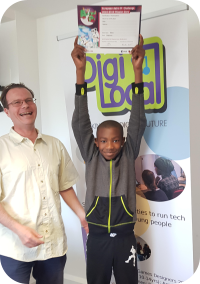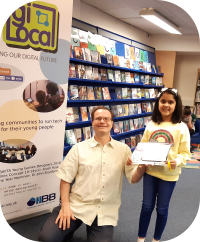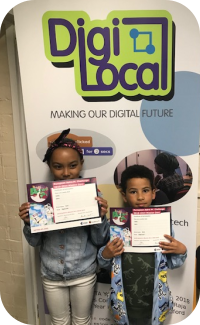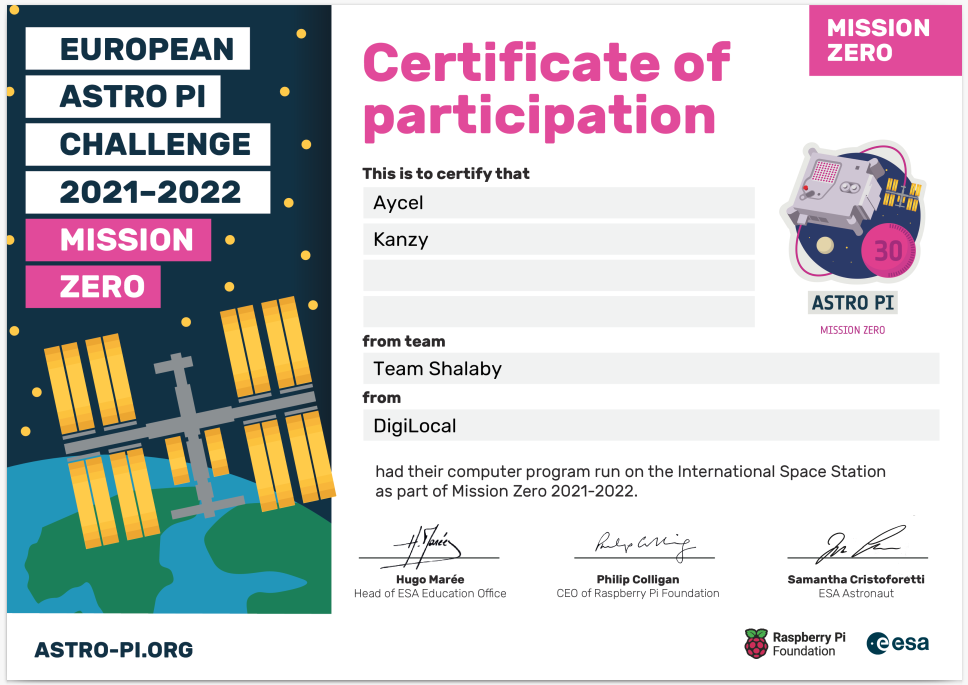
DigiLocal is supporting young people to discover and develop their digital talents. We provide young people from under-represented groups in the tech industry with opportunities to develop their problem solving skills and build resilience.
In addition to our weekly community based clubs, we also provide external opportunities such as the European Astro Pi Challenge – Mission Zero.
Mission Zero offers participants up to 19 years old the chance to have their code run on the International Space Station!
External challenges help young people see the real-world application of their club activities. With our support they can, literally in this case, reach for the stars.
Dr John Bradford, CEO, DigiLocal
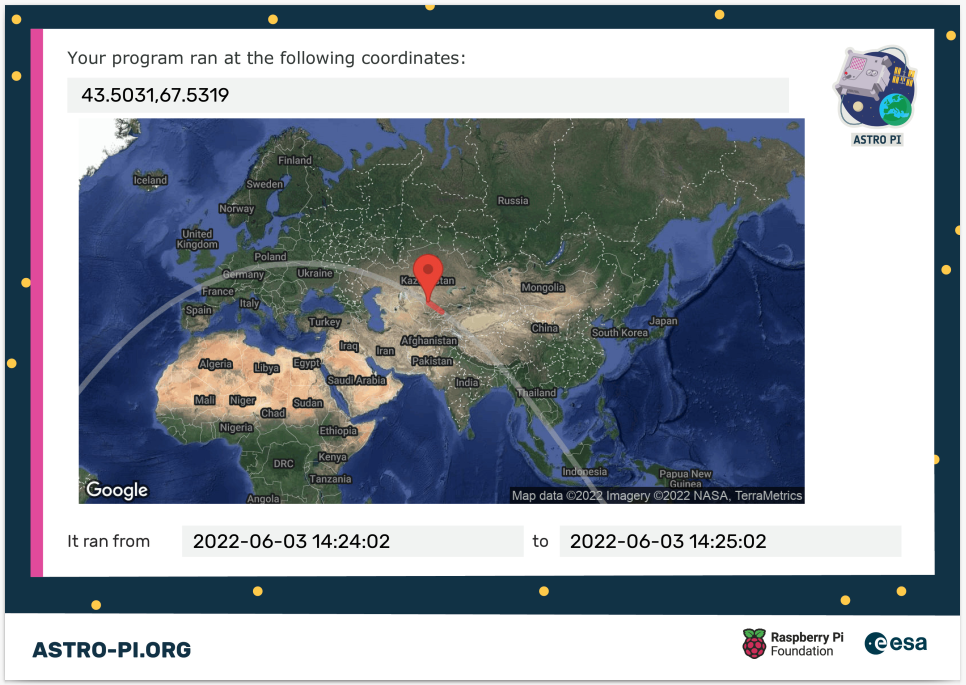
Teams or individuals write a python program to display a message and take environmental reading on an Astro Pi computer. These messages and readings are displayed to the astronauts as they go about their daily tasks on the ISS.
There are strict requirements that the code run without errors, complete it’s display within 30 seconds, and be efficiently coded.
Each year we support teams of young people to discover and participate in the Mission Zero Challenge. This year we had 6 teams taking part from across Bristol.
“We’ve really enjoyed attending… It’s so much fun. We started using scratch and then moved on to Python, which is more challenging. We specially like the competitions.”
Aycel & Kanzy (aged 11 & 9 yrs)
Each team receives a high quality certificate with a map on the reverse showing where the ISS was when their code ran (and yes, the maps are all different, showing exact times / locations – as you’d expect from a space station)!
About Digilocal
DigiLocal® is an independent registered charity (Reg: 1185746) for the public benefit, to advance the education of young people in the UK from groups that are under-represented within the technology industry, in particular but not exclusively, by supporting free technology clubs. It supports communities to run free tech clubs for their young people. Its mission is to support a tech club for young people with every community in the UK that would like to provide one.
European Astro Pi Challenge
The European Astro Pi Challenge is an ESA Education project run in collaboration with the Raspberry Pi Foundation. It offers students and young people the amazing opportunity to conduct scientific investigations in space by writing computer programs that run on Raspberry Pi computers on board the International Space Station (ISS).

